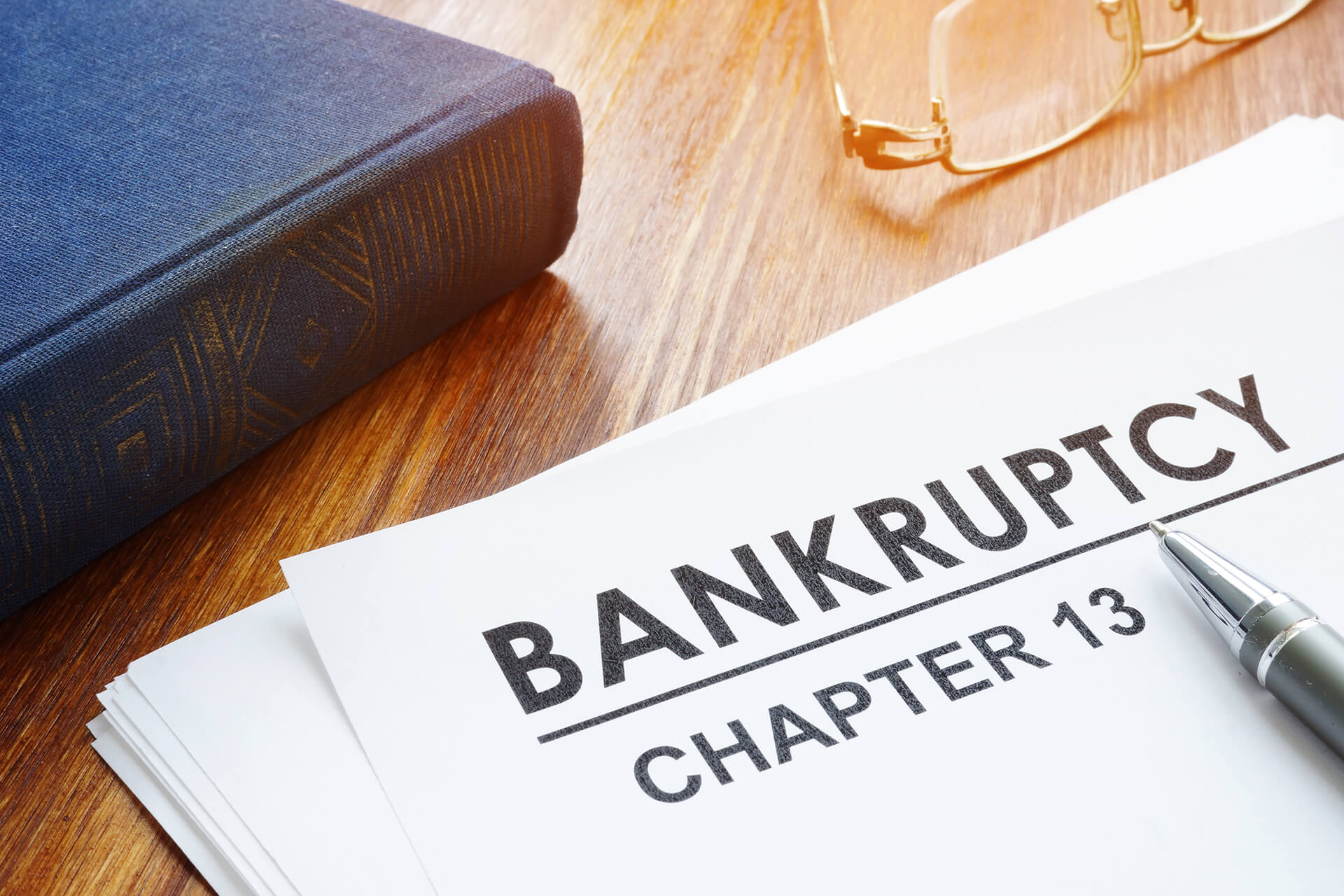Consumer Bankruptcy Lawyer: How Bankruptcy Can Help with Credit Card Debt


Written by Robert DeMarco
Many people are overwhelmed with credit card debt, making it difficult to make ends meet. This can result from unemployment, medical expenses, or other issues that may have arisen unexpectedly. If you’re struggling financially and considering bankruptcy as an option, know your rights and how filing for bankruptcy can help manage your debts. Contact a consumer bankruptcy lawyer today to learn more about the process and what options are available for you.
When you file for bankruptcy petition, your creditors have the option of either giving up or fighting. Suppose they choose to fight it and make their claim from our life’s savings against us in court proceedings. In that case, we may be forced out into debtors’ prison where there is little chance of rehabilitation due to legal restrictions on what can be done with money owed- even if this was an accident or justifiable homicide!
To get out of debt, you may be able to file for bankruptcy. There are two types of bankruptcy: Chapter 7 and Chapter 13. A consumer bankruptcy lawyer will know the best option for your situation. Unlike a wage earner who may have more options available, a self-employed person might lean towards filing under Chapter 13 bankruptcy because it allows you to keep your assets and reorganize your debts. A consumer bankruptcy attorney will know the best option for you to reduce or eliminate debt while still protecting your assets and reorganizing your debts.
Contract Breach
A breach of contract suit is filed when creditors decide they’re owed money and want their debt paid. Suppose you don’t answer the complaint or have not had a chance to yet because it was served on your doorstep without notice (initiated by “served”). In that case, an automatic default judgment will be entered against both sides–the amount owed is determined from what’s been alleged so far in court papers and any fines/penalties stipulated within the said ruling. This may include interest rates based on current market conditions when such a decision becomes enforceable; attorneys can help determine how best to approach responding depending upon whether bankruptcy seems right for one’s situation. However, bankruptcy lawyers can assist in basically every area of the law.
Which Chapter Should You File?
When looking into bankruptcy options, there are many factors to consider. Consumers’ two most common types of filings come at different costs and consequences: Chapter 7 bankruptcy requires that disposable Income is below the required limit, with this type often called liquidation bankruptcy because it turns over assets to pay off creditors as soon as possible. At the same time, those who need more time can keep some property through Chapter 13 proceedings, where payments stretch out for years if necessary but never exceed your total asset value. Possessions exempt from these activities include homes, cars, certain retirement accounts, and insurance policies if you don’t have any valuable assets left after selling everything else. Consumer bankruptcy attorneys have up-to-date information about current laws and regulations at their fingertips, so you don’t have to.
Chapter 13 is a wise option for those who need to file bankruptcy because it does not require much Income. The filer will agree with creditors that pay off their debts over time and set caps on how much debt can be owed before discharge becomes possible: $419k of unsecured or secured loans. This would amount to less than what you originally owe if any remains after duty payments have been made in full each month according to this repayment schedule along the way, plus interest rates at the time of filing.’
Suppose you have more than this amount of debt. In that case, it might be worth looking into Chapter 11 bankruptcy, where a bankruptcy attorney would help you see what type of debts can be reduced or eliminated through restructuring, which includes student loans, child support, and alimony within the guidelines. Bankruptcy lawyers can help determine which type of bankruptcy to file for.
Following Steps
Once a bankruptcy petition is filed, the court will place an automatic stay. This stops creditors from starting or continuing collection activities. It’s like legal protection for debtors who are going through challenging financial periods and can’t pay their bills on time and other necessities such as health care costs that come up due to illnesses they may contract without coverage. This also protects them if one happens while in possession of questionable ownership documents (i.e., credit cards). A hold has been placed against any pending suits, so those cases won’t move forward until after everything regarding creditor activity regarding said debtor’s account(s) has concluded. Consumer Bankruptcy Lawyers can provide verifiable proof of filing with the court that creditors need to stop any collection attempts through their licensing/certification or professional association membership.
Credit Card Debt in Chapter 7 Bankruptcy
The bankruptcy process wipes out most or all unsecured, nonpriority debt. Medical bills and personal loans are typical examples of this type of credit card debt you can discharge in Chapter 7 proceedings with a successful petition to do so by both halves-the debtors as well as their creditors. Your responsibility for these types of priority debts will remain after applying. Still, it’s worth looking into before filing just how much each creditor may ask from them since ensuring there is enough left over at the end can be difficult without planning!
Discharge of Outstanding Debt
The two types of bankruptcy would discharge credit card debt if not acquired due to fraudulent activities or pretenses. Other types of debts are also surrenderable in an attempt at financial recovery. Still, consequences can arise from these actions, so your best bet is always to go through a lawyer first! Some dischargeable debts are:
- If you lied on your credit card application to deceive the creditor, that was “material” in favor of extending your money. For example, if you made up your Income and told them you earned ten million dollars when it’s only worth $50k, they might give you an unqualified loan with lousy interest rates!
- When you get a cash advance from one creditor within 70 days of your bankruptcy filing, it’s indicative that they believe in their company’s future success and growth potential.
- If you buy luxury goods or services for $725 within 90 days of your bankruptcy filing, the law presumes that this was done with the intent to avoid paying taxes fraudulently.
- utility bills
- membership fees
- auto loans/mortgages/secured debt
- medical bills
- rent/ lease payments
- personal loans
However, few debts are not dischargeable, such as:
- criminal penalties
- student loans
- death or injury caused due to DUI
- alimony & child support
When The Credit Card Debt Is Secured, You Cannot Keep The Property.
Your credit card may have collateral attached in the event of unsecured debt. The lender can take ownership or possession of certain items, such as jewelry and electronics; this protects their investment by making sure you don’t default on payments if something happens with your goods. A professional bankruptcy lawyer can help you determine what is and is not considered secured debt.
Credit Card Debt in Chapter 13 Bankruptcy
When you file for a Chapter 13 bankruptcy, your creditors will be repaid through the repayment plan that lasts three to five years. The amount of debt you must pay back depends on two factors – how much disposable Income and nonexempt property (assets) exist for this purpose. If any at all, in comparison with total claims by other filers seeking relief from similar debts and unsecured priority claims that carry higher rates than those offered under chapter 11 or 12 reorganizations.
Income from other sources such as alimony, child support, or pension benefits is added to this total. Consumer Bankruptcy Lawyers can help you get the most accurate calculation of your disposable Income so that a repayment plan can be formulated strictly according to your ability to repay, considering all factors available for consideration.
Can Chapter 7 Bankruptcy Be Filed On Credit Cards Only?
In Chapter 7, you must incorporate all of your debt in the bankruptcy case. But if you want to repay creditors after filing for protection from them voluntarily. It will be unusual not to have paid off credit card debts when other more pressing financial priorities like rent or mortgage payments need attention first before anything else. This can happen with these types of money matters online dating sites reviews.
The command on how much repayment should take place depends entirely upon an individual’s circumstances; however, repaying any amount less than what was owed would result in being discharged altogether without penalty as long as we did concomitantly file chapter 13 bankruptcies.
Can Credit Card Companies Sue a Debtor Even After Filing for Bankruptcy?
Bankruptcy is an excellent way to get out of all your debts. Once you file for bankruptcy protection, most creditors cannot continue collection efforts against you because of an automatic stay that extends up until the time when they would have been able otherwise if not stopped by this law first! Consumer Bankruptcy Lawyers can explain everything in detail about this particular topic.
After filing for bankruptcy, the creditor then has until the “bar date” (the deadline for creditors to file claims against you) to file a lawsuit against your estate. Consumer Bankruptcy Attorneys will know all about the bar date and claim filing deadlines. Bankruptcy attorneys can also help you file any claims that creditors try to file against your bankruptcy case.
Consumer Bankruptcy Lawyer in Plano, TX
DeMarco Mitchell, PLLC is a bankruptcy law firm that can help with credit card debt. Contact us today for more information on how we can work together to get you out of your financial bind! We are all experienced in helping consumers through the process and will not take advantage of any vulnerability they may see. We have helped plenty of people in similar positions as yourself find relief from their overwhelming debts by filing Chapter 7 or 13 bankruptcy proceedings. Get back on track financially today contact our office at (972) 578-1400 to schedule an appointment now!
Related Articles
Related
Chapter 7 Attorney: A Guide to Navigating Bankruptcy and Choosing the Right Legal Representation
Chapter 7 Attorney: A Guide to Navigating Bankruptcy and Choosing the Right Legal Representation Are you considering filing for Chapter 7 bankruptcy? Navigating through the complexities of bankruptcy law can be overwhelming, but with the help of a knowledgeable...
Navigating Chapter 7 Bankruptcy in Texas: Key Roles of a Texas Bankruptcy Lawyer and When to Consult One
Navigating Chapter 7 Bankruptcy in Texas: Key Roles of a Texas Bankruptcy Lawyer and When to Consult One Are you grappling with overwhelming debts and contemplating bankruptcy as a possible way out? Are you unsure about the proceedings and when to take that pivotal...
Understanding the Different Types of Bankruptcy for Individuals in Texas
Understanding the Different Types of Bankruptcy for Individuals in Texas If you're struggling with debt and considering bankruptcy as a solution, it's essential to understand the different types of bankruptcy available for individuals in Texas. At DeMarco Mitchell,...


